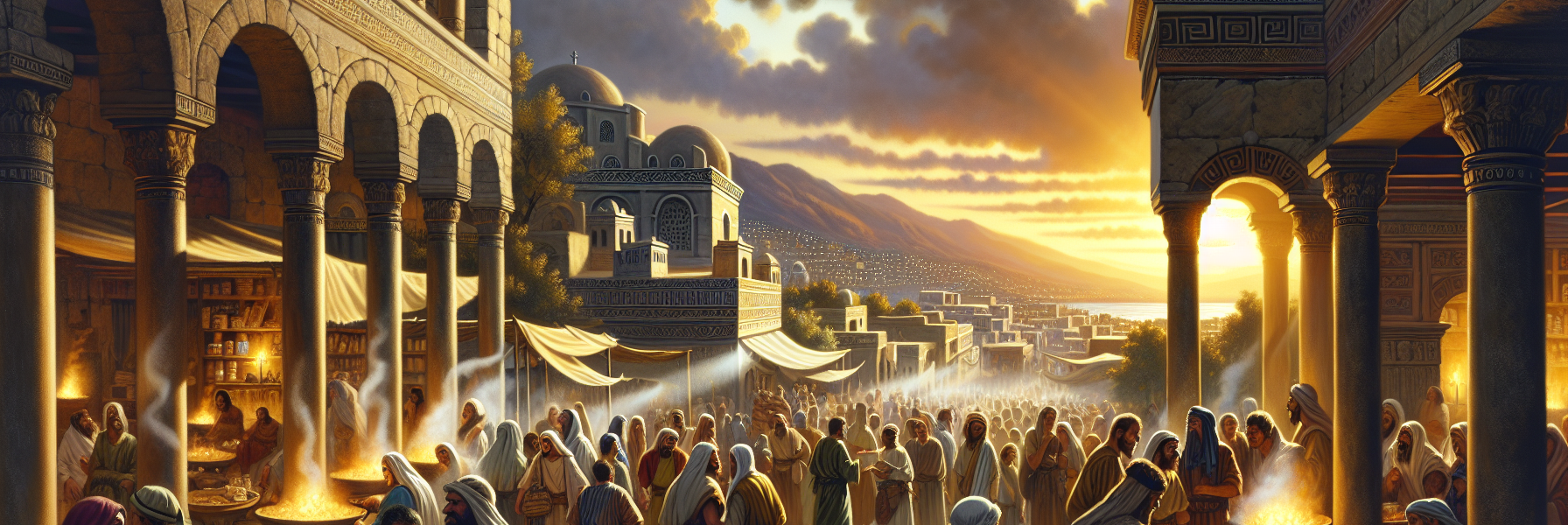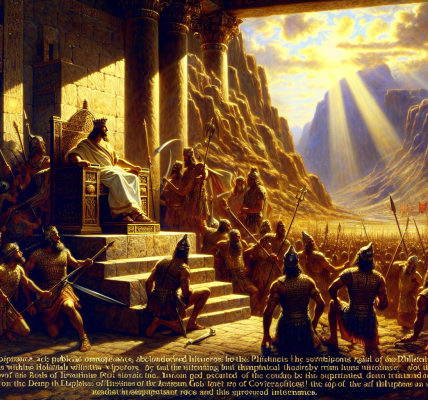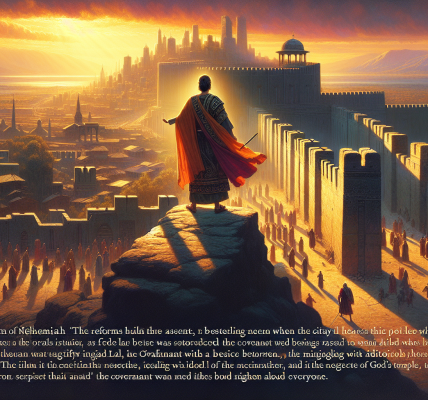Spiritual Battle in Corinth (Note: 26 characters, well within the 100-character limit, concise, and captures the essence of the story.)
**The Battle for the Mind: A Story of Spiritual Warfare**
The sun hung low over the city of Corinth, casting long shadows across the bustling marketplace. The air was thick with the scent of spices, the clamor of merchants, and the murmurs of debate. Among the crowded streets, a group of believers gathered in a small house-church, their faces troubled. Whispers had spread—false teachers had risen among them, sowing doubt, questioning the authority of the Apostle Paul.
“They say he is bold in letters but weak in person,” one man muttered.
“His words are strong, but his presence is unimpressive,” another scoffed.
The believers shifted uncomfortably. The accusations stung, for they had known Paul’s love, his tears, his tireless labor among them. Yet now, some were swayed by smooth talkers who boasted of visions and superior wisdom.
### **The Letter Arrives**
Then, a messenger arrived, bearing a scroll—Paul’s response. The room fell silent as the parchment was unrolled. The words burned with divine fire:
*”I, Paul, myself entreat you, by the meekness and gentleness of Christ—I who am humble when face to face with you, but bold toward you when I am away!”* (2 Corinthians 10:1).
The readers leaned in, sensing the weight of what followed. Paul, though physically unassuming, was a warrior in the Spirit. He did not fight with the weapons of the world—no sword, no eloquence of human persuasion. His warfare was different.
*”For though we walk in the flesh, we are not waging war according to the flesh. For the weapons of our warfare are not of the flesh but have divine power to destroy strongholds”* (2 Corinthians 10:3-4).
### **The Unseen Battle**
As the words were read, the room seemed to tremble with unseen power. Paul was not merely defending himself—he was exposing a greater battle. The false teachers relied on human wisdom, on impressive speech, on outward appearances. But Paul fought with truth, with prayer, with the sword of the Spirit.
He spoke of *strongholds*—not stone walls or iron gates, but fortresses of the mind. Arguments, lofty opinions, every proud thought that exalted itself against the knowledge of God—these were the enemy’s ramparts. And the Gospel was the battering ram that shattered them.
*”We destroy arguments and every lofty opinion raised against the knowledge of God, and take every thought captive to obey Christ”* (2 Corinthians 10:5).
### **The True Measure**
Some in Corinth had measured Paul by worldly standards—his speech, his appearance, his letters. But Paul warned them: *”Let the one who boasts, boast in the Lord”* (2 Corinthians 10:17). True authority came not from self-promotion but from Christ.
As the letter concluded, the believers sat in stunned silence. The air was charged with conviction. The false teachers had dazzled with words, but Paul had wielded the power of God.
One man, once swayed by doubt, bowed his head. “We have been fools,” he whispered. “We judged by sight, not by faith.”
Another nodded. “His weakness is his strength. His letters are filled with the Spirit’s fire.”
### **The Victory of Truth**
That night, the believers prayed, repenting of their wavering hearts. The strongholds of pride and deception crumbled before the truth. Paul had not come with flattering speech, but with the unchanging Word of God.
And though he was far away in body, his spirit was among them—a soldier of Christ, armed with divine weapons, fighting a battle not for his own glory, but for the souls of those he loved.
The dawn broke over Corinth, and in the hearts of the faithful, a new resolve took root. They would take every thought captive. They would stand firm in the truth. For the battle was the Lord’s, and the victory was sure.




